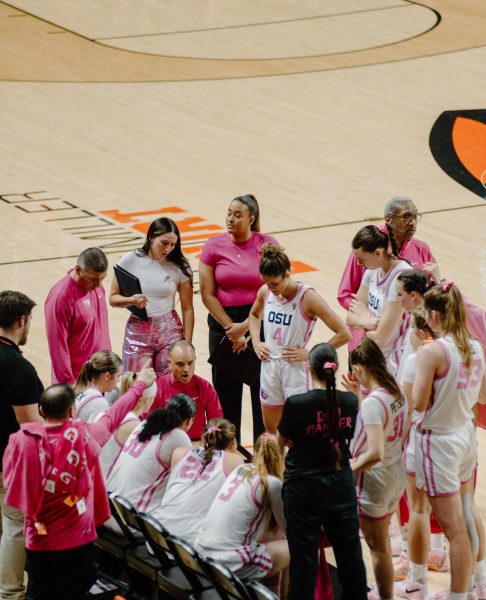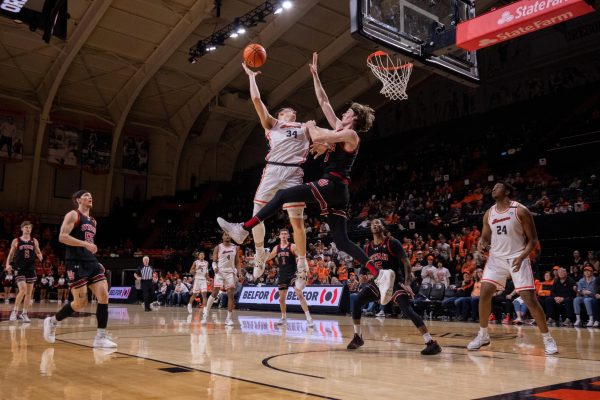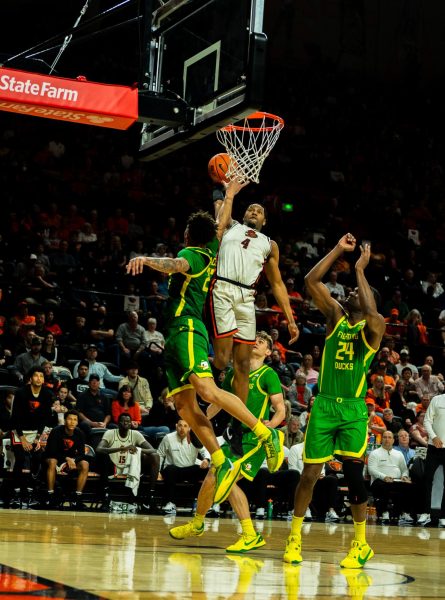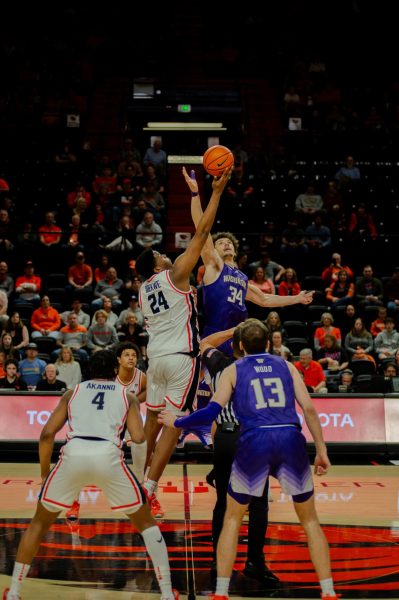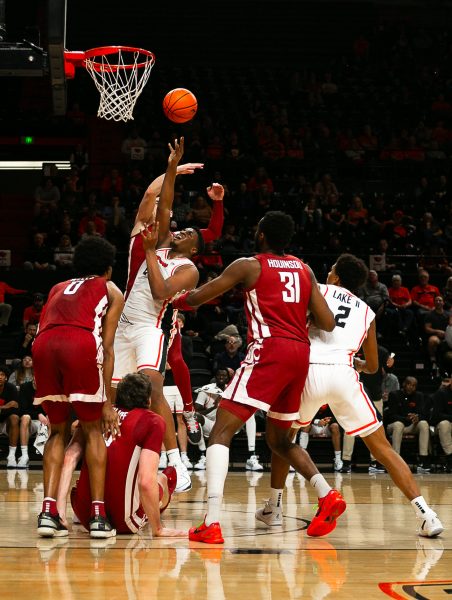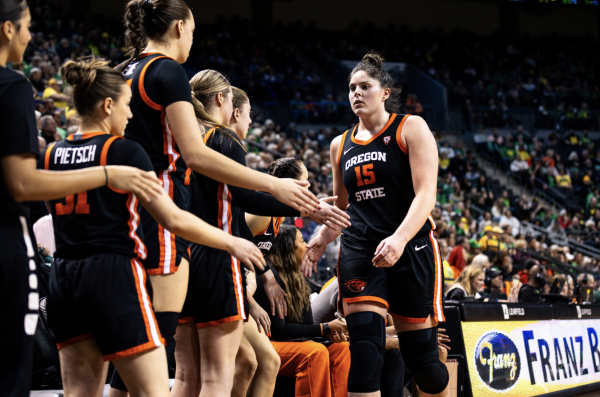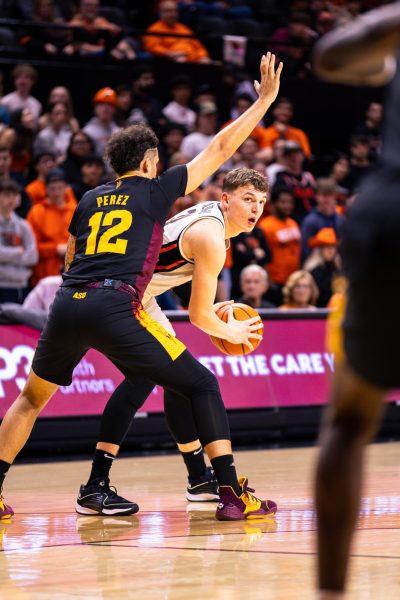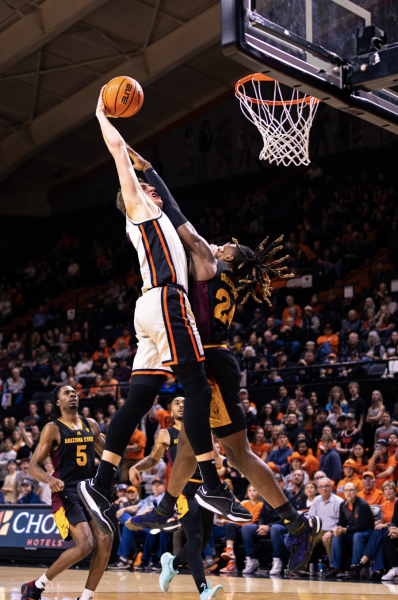Rathbone: Reid’s trip bailed out officials for poor officiated performance
January 18, 2016
If Rasheed Wallace — the man who received technical fouls without saying a word to officials—had been watching Sunday’s game between Oregon State and Utah, even he would have agreed that Jarmal Reid’s actions of tripping the referee crossed a line.
For a program that hadn’t reached the NCAA tournament in a quarter-century has been clawing their way to become relevant in college basketball landscape. Sunday night in Salt Lake City, the Oregon State men’s basketball was finally put on the map.
Just not the way Oregon State stole the headlines, was not the way that anyone—coaches, players and fans—wanted.
With under three minutes left in the game deadlocked at 52-52, the senior forward fell to the floor gathering a loose ball. As he started to get up, he extended his leg and tripped referee Tommy Nunez. Reid was issued a technical foul, a flagrant two foul and was ejected from the game.
If Rasheed Wallace — the man who received technical fouls without saying a word to officials—had been watching the game, even he would have agreed that Reid’s actions crossed the line.
Within 24 hours Reid was issued a minimum four-game suspension from head coach Wayne Tinkle — a fair suspension. But the damage has been done. After the video of the trip went viral, it will take more than four games to get rid of the dark shadow cast upon the team.
As bad as the trip was, the play bailed out the officials. No rational basketball fan is going to agree that it’s acceptable to trip an official—no matter how badly someone wants to do it. Because of that one play, the refs got off the hook for what was a very poorly officiated game.
I’m usually not one to call out how games are officiated or blame them for the outcome of games, because being a ref — especially in basketball — is a difficult and thankless job. Refs aren’t given the luxury of watching the play from multiple angles and in slow motion, they have a split second to make a call.
Refs will never be perfect, as long as the refs are consistent — good or bad — I’m fine. Sunday’s game was anything but that. Utah is a good team, went to the Sweet Sixteen a season ago, has a victory over Duke on their resume this year and has a potential lottery pick in Jakob Poeltl on their roster. A victory over the Utes would have been a good victory for Oregon State.
As good as they may be, are they that disciplined on defense that they only committed 10 fouls during the entire game? For comparison, Oregon State was call for 11 fouls in the first half alone and 24 in the entire game. If Utah was attacking the basket and working the paint, that would be justifiable, but nearly half of their attempts (21-of-43) were coming from behind the arc. They weren’t exactly their more aggressive team, but they got the calls like they were.
Oregon State, on the other hand, worked the ball down low, drove to basket. Yet somehow only managed to shoot eight free throws the entire game — the same number of three point shots they took. Utah was getting the ticky-tack fouls, fouls that weren’t handed out to the Beavers.
There was some obvious fixes that the Beavers need to make, finding ways to close out games and overcoming poor officiating is at the top of that list. But when a team is constantly fighting with foul trouble while giving up free points from the charity stripe, it makes holding those leads all the more difficult.
Pac-12 Commissioner Larry Scott said that there will be no further punishment brought down on Reid for the trip—and rightfully so. My hope is that when the commish reviewed the incident, he watches the entire game and not just the 30 second clip of Reid’s blunder.
Reid needed to be held accountable for his actions and was—it’s only fair that the refs are held to the same standard.
On Twitter @brathbone3














































































































